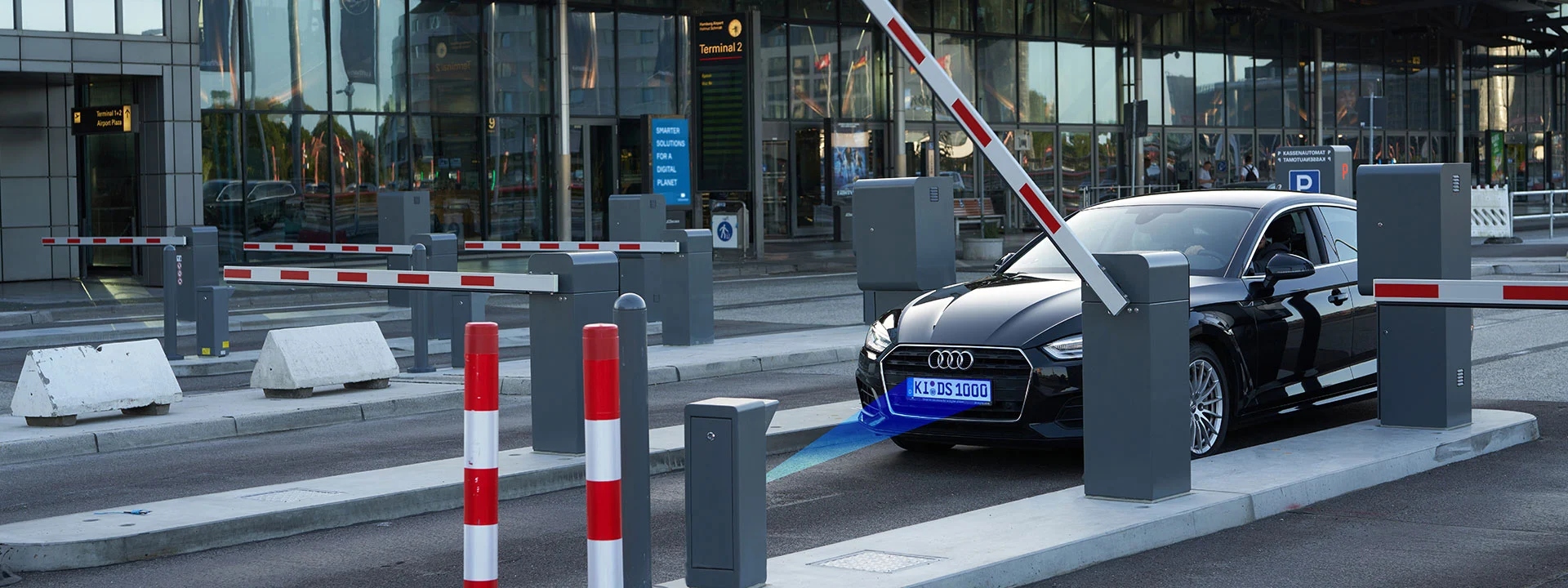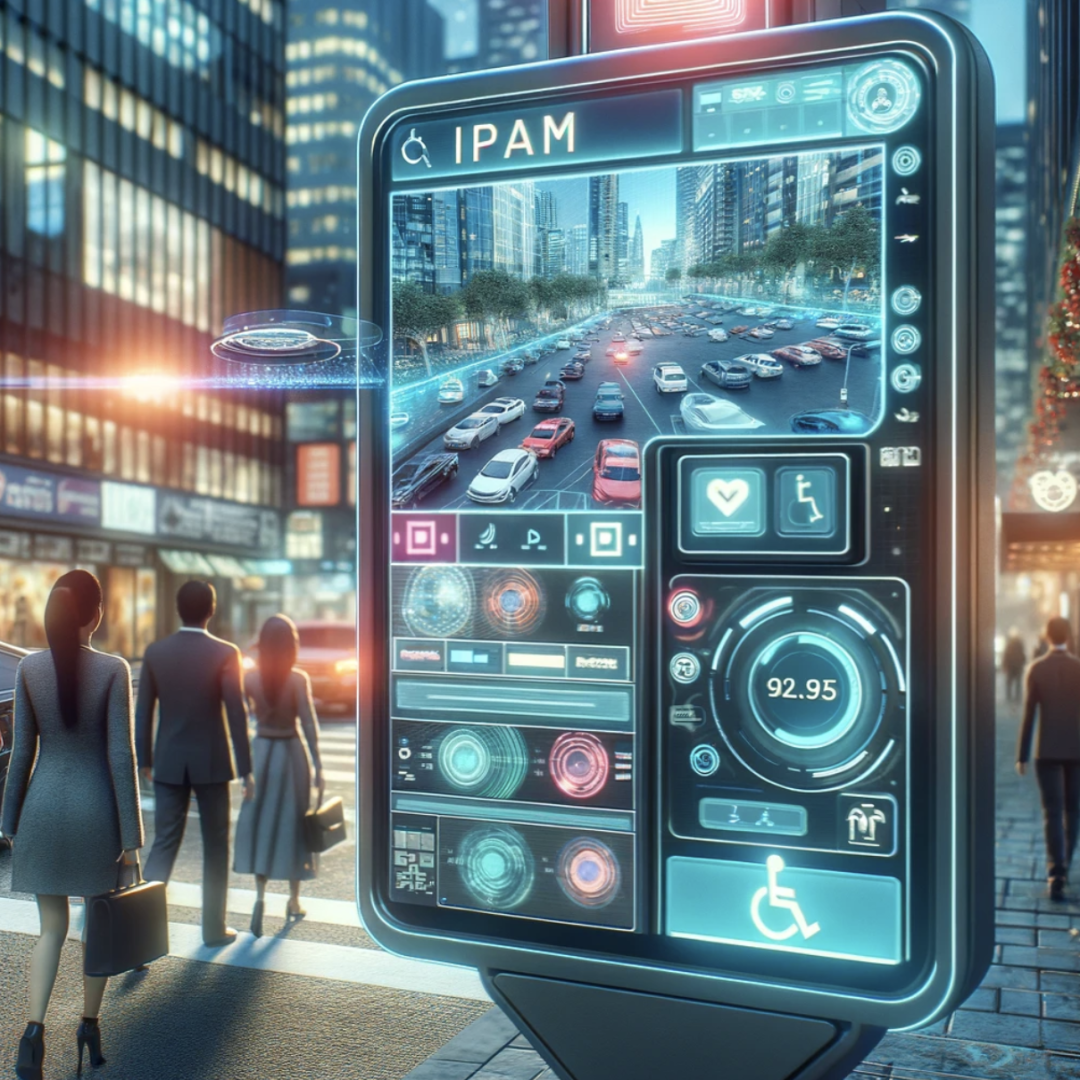Comments
- No comments found

Digital parking enforcement has become a necessity to streamline parking operations and optimize parking spaces.
Parking enforcement with iPAM will help officers and parking lot operators to ensure that parking regulations are correctly adhered to.
The parking industry worldwide is witnessing a series of transformations driven by path-breaking technology, particularly digital parking enforcement systems. In smart cities, parking enforcement authorities and government bodies are integrating innovative solutions like iPAM (Intelligent Parking Management System) with the existing infrastructure to monitor parking spaces. A report suggests that 11% of the world's parking spaces are now smart parking spaces, and by the end of 2023, this number is estimated to reach 16 percent.
Parking enforcement with iPAM can help streamline operations in densely populated cities, ensuring regulation adherence and optimal space utilization. This efficient system meets urban demands, transforming the parking landscape and enhancing the overall experience. Embracing these advancements fosters a professional ecosystem, revolutionizing parking solutions.
Let’s gain deeper insight into the world of digital parking enforcement and the significant role of smart parking solutions like iPAM that hold the key to transforming and optimizing parking spaces.
Digital parking enforcement, often known as digital citation management or mobile parking enforcement, represents a state-of-the-art technology that empowers law enforcement authorities to effectively monitor parked vehicles, ensure compliance with parking rates and regulations, and administer parking citations seamlessly.
This technology leverages online, cloud-based platforms like computer vision and optical character recognition. This enables parking officials and enforcement officers to access real-time data through connected devices. iPAM is one such smart parking solution designed to cater to parking management companies and traffic enforcement officers, besides drivers. It is an advanced AI-driven parking management system offering seamless electronic monitoring, resulting in efficient parking space management. It aims to revolutionize how parking facilities are managed, enhancing the overall parking experience for the stakeholders involved.
According to the UN, 68 percent of the world's population will live in urban areas by 2050.The rising population in cities can lead to obstacles in managing parking spaces. This is mainly due to the surge in parking demands, constraints in available parking spaces and the imperative to uphold parking regulations.
Conventional enforcement methods prove arduous and labor-intensive, resulting in overlooked parking violations and substantial revenue losses for cities. Implementing digital parking enforcement solutions like iPAM is vital to address these challenges. By leveraging these systems, it can help alleviate the burden on parking enforcement officers while significantly bolstering the enforcement of parking rules and regulations. This will ultimately lead to improved parking management in urban areas.
The following features of iPAM help enforcement officers in managing parking spaces effectively and optimally:

When iPAM is integrated with DMV or similar databases, it maps handicapped individuals' vehicles using Vehicle Identification Numbers (VIN) or License Plate Numbers (LPN). Through this process, iPAM can efficiently recognize authorized vehicles for handicapped parking spaces. When a non-mapped vehicle parks in a designated handicapped spot, the system generates immediate alerts, ensuring proper enforcement and preventing unauthorized parking. This recognition of handicapped parking violations enhances accessibility and compliance, creating a more inclusive and organized parking environment.
iPAM is incorporated with artificial intelligence technology to monitor and track habitual violators or offenders effectively. The system identifies and records real-time data on individuals who repeatedly violate parking regulations or engage in unlawful parking behavior. This can enable law enforcement agencies and parking authorities to proactively address frequent violations, ensuring enhanced compliance and safety within parking facilities. Digital parking enforcement like iPAM contributes to creating a more efficient and well-managed parking environment, improving overall traffic flow and fostering a culture of responsible parking practices.
iPAM sends real-time alerts for spaces utilized by vehicles marked as BOLO (Be On the Lookout) and VOIs (Vehicle of Interest). By leveraging time stamps, video captures, and real-time parking insights, iPAM can efficiently recognize these flagged vehicles within parking lot spaces. This advanced recognition system can empower law enforcement agencies and parking management to respond to potential security threats and address suspicious activities swiftly.
When iPAM identifies parking offenders or vehicles parked in unauthorized areas, it automatically sends messages to the relevant tow management services, notifying them of the violations. This efficient process can help streamline the enforcement of parking regulations, ensuring that violating vehicles are promptly dealt with and maintaining order and compliance within parking facilities. iPAM's integration with boot/tow services enhances the effectiveness of parking enforcement, contributing to a well-organized and safe parking environment.
By harnessing the power of iPAM, Meter Enforcement Officers (MEO) gain the ability to efficiently validate parking violations, issue tickets, and conduct vital tasks using a mobile application. Acting as a centralized platform, iPAM's MEO app simplifies monitoring parking compliance and enforcing regulations. Its user-friendly interface equips enforcement officers with essential tools to maintain well-regulated and orderly parking, benefiting both users and administrators alike.
iPAM's permit management efficiently identifies authorized parking lot users through pass purchases or predefined criteria set by the town or city. Users can buy single-use, day passes, or monthly passes and permits can also be allocated based on parameters like residential proximity to the lot. Administrators can modify permits, reject applications, and export permit data for reporting or integration with other apps. With a user-friendly interface, iPAM helps streamline parking access and ensures a seamless process for both administrators and permit holders.

With the advent of advanced technology, digital parking enforcement systems have emerged as a game-changer in managing parking violations and ensuring smooth traffic flow in busy urban areas. These systems utilize tools like cameras and license plate recognition technology to automate the enforcement of parking regulations, offering a host of benefits to both authorities and drivers. Further, let us explore how digital parking enforcement systems are changing the way we manage parking.
Digital parking enforcement systems use AI-enabled high-resolution cameras to accurately detect the presence of vehicles and the real-time availability of parking spaces. Equipped with computer vision technology to recognize license plates, these systems can accurately identify and validate vehicles parked in violation of regulations. By eliminating the need for manual patrols, enforcement becomes more efficient, and the potential for human error is greatly reduced.
Once a violation is detected, the digital system generates a parking citation with the necessary details and photographic evidence. The parking citation is delivered electronically via email or mobile application, reducing dependency on human capital. This streamlined process expedites enforcement, ensuring that offenders are promptly informed of their violations.
One of the key advantages of digital parking enforcement systems is their integration with parking payment systems. When a parking citation is issued, the system automatically tracks the fine, providing an easy and efficient way for offenders to make payments online from the comfort of their homes. This integration not only facilitates quicker resolution of fines but also encourages compliance with parking regulations.
Beyond automated parking citations, digital parking enforcement systems provide real-time data and analytics on parking occupancy and enforcement. This data empowers parking authorities with insights into peak hours, violation-prone areas, and other patterns, enabling informed decisions for optimized parking resource allocation and improved traffic management.
With digital parking enforcement, cities and municipalities can significantly improve operational efficiency. Since the need for manual patrols and paper ticketing is reduced, it can save labor and paper usage costs. Digital parking enforcement technology provides vital support during peak hours and reduces the pressure on human resources. Also, the swift resolution of violations and automated payment processes contribute to a more efficient and streamlined enforcement system.
The transparency and accuracy of digital parking enforcement systems can deter potential violators. The fear of receiving a citation encourages motorists to adhere to parking regulations, improving overall parking compliance. Additionally, better enforcement contributes to enhanced safety, as unauthorized or improperly parked vehicles are promptly identified and dealt with, reducing traffic hazards.
As people migrate to cities and contribute to the increasing population, law enforcement authorities will need digital parking enforcement solutions to streamline operations. These solutions represent a significant leap forward in managing parking violations and traffic flow in urban areas. Parking enforcement with iPAM will not only help the drivers but also the law enforcement agencies and parking lot operators in improving overall efficiency. In the future, embracing the power of digital parking enforcement will become a necessity for creating a smart and sustainable urban environment for all.
Naveen is the Founder and CEO of Allerin, a software solutions provider that delivers innovative and agile solutions that enable to automate, inspire and impress. He is a seasoned professional with more than 20 years of experience, with extensive experience in customizing open source products for cost optimizations of large scale IT deployment. He is currently working on Internet of Things solutions with Big Data Analytics. Naveen completed his programming qualifications in various Indian institutes.
Leave your comments
Post comment as a guest